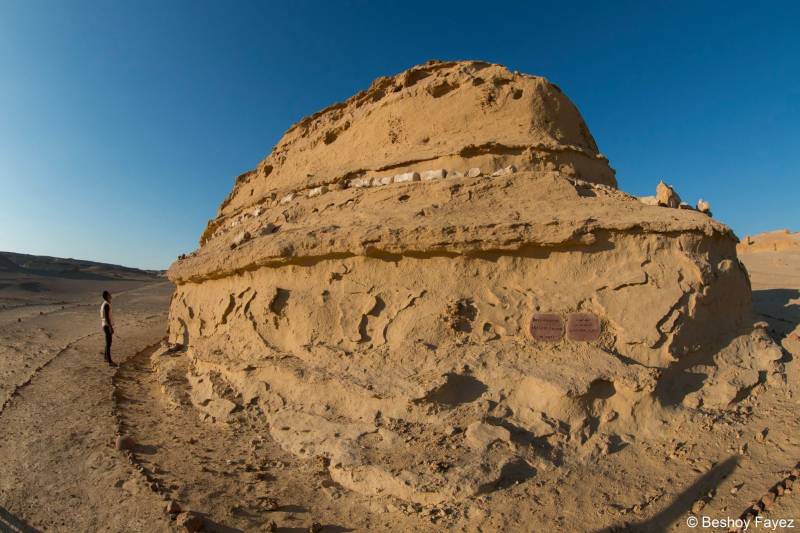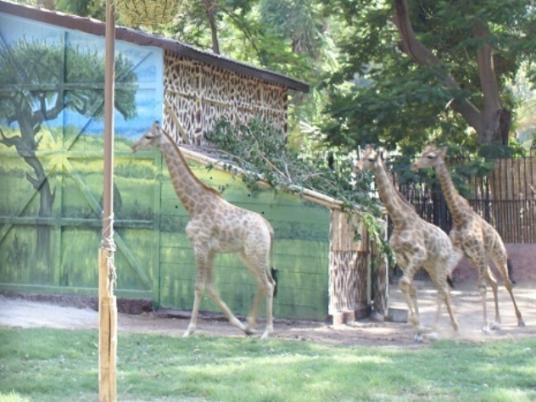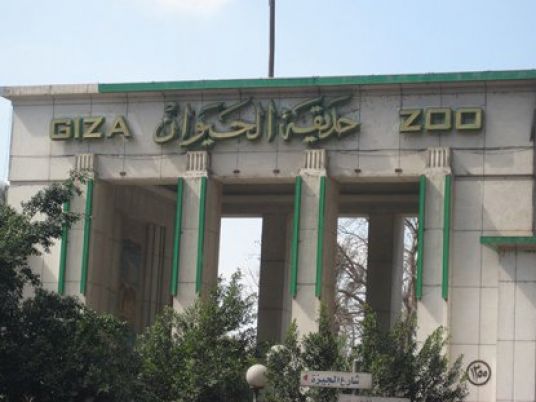Dina Zulfikar remembers how her passion for animals started – at her aunt and uncle's flat in Tahrir Square.
"Their love for pets led them to rescue wounded stray dogs that had been hit by cars and bring them to the vet," she said. "This is how I learned to be kind to animals."
Zulfikar, 49, is one of Egypt's most determined animal welfare advocates. She has turned her childhood sympathy for animals into an organized battle to protect domestic animals and wildlife in Egypt.
Her activism began while she was a student at Cairo University. Zulfikar teamed up with her friend Amina Abaza – the chairperson of SPARE Animal Welfare Society – to set up an organization dedicated to the welfare of animals.
“We first thought about creating this organization after we visited two shelters in Nasr City and were shocked by what we saw. Instead of serving as rescue shelters for stray animals, these facilities were offering boarding for rich people’s pets,” she says.
In the process of setting up their association, the two students regularly held meetings at the veterinary department of Cairo University. In order to get media coverage, they invited celebrities such as Hend Rostom and Nadia Lotfy, two well-known animal lovers.
A few months later, a dispute between Zulfikar and Abaza on the choice of the association’s chairperson froze their project, which rapidly fell into oblivion.
Many years later, Zulfikar’s battling spirit was reawakened by what she considered a “monstrosity" organized by the Egyptian government.
“In 2004, the government ordered the massive killing of stray dogs in Cairo, and you could see in broad daylight policemen shooting dogs all over the city," she said.
She explained that vets from the General Organization of Veterinary Services (GOVS) were also involved in the killings, widely considered to be massive in spite of an absence of figures determining how many stray dogs were killed.
“We may not have concrete figures for Cairo, but the government replicated its bloody action in Aswan in 2009 and slaughtered 4000 dogs,” she says.
Enraged by the massacre, she decided to hold a meeting with various animal welfare organizations to denounce the killing.
“We sent petitions online, and we addressed both national and international societies asking for their help,” she says.
They decided to increase cooperation between various associations and organizations for more powerful action. They created the Animal Welfare Awareness Research group (AWAR) on 14 September 2007, with Zulfikar as its dynamic coordinator.
"This group is based on coordinated actions between various NGOs and groups for the protection of animals, with different specialties and work methods that can feed each other," Zulfikar says.
AWAR has started various projects since its creation, the most impressive being the campaign called “Revitalizing the Giza Zoo” that started at the end of 2007.
“The Central Governmental Zoos Authority did not respect the basic standards of captivity animals' rules, so we contacted all the relevant international animal societies to put pressure on it,” she explains, adding that AWAR experienced fierce confrontation with the authority for a year.
At a meeting organized by AWAR at the Opera House, the agriculture minister, zoos authority director, the GOVS and various animal welfare NGOs set three priorities in order to revitalize the zoo.
“Our first priority was the chimps’ enclosure, followed by the bears and the elephant enclosures,” Zulfikar explains, stressing the poor living conditions of those animals.
“We started with the chimps and donated ropes and hammocks while putting pressure on the zoo administration to reunite three baby chimps that were isolated in single cages,” she says.
A blueprint for a bigger living area for the chimps was submitted to the zoo administration and accepted, but it was never implemented because of the global economic recession, she said.
AWAR also got in touch with PAZAAB, the African Association of Zoos and Aquaria, to try to facilitate the Egyptian zoos’ acceptance into this pan-African organization. In December 2008, Zulfikar received the confirmation that Egyptian zoos were now part of the African organization – a positive step because the zoos had to comply with certain rules related to the welfare of animals in captivity.
On 16 April this year, Zulfikar organized a protest in front of the zoo against the way animals are treated in captivity and to denounce a what she called a blatant conflict of interest within the management of the central zoos.
She said in Egypt, the same person is head of the central zoo and Cites, the convention on international trade in endangered species and wild flora and fauna.
"A zoo is a breeding and exhibition facility," she explains, "while Cites deals with wildlife and animals that travel from and to Egypt. So if the same person heads the two institutions, he can easily issue permits to facilitate the entry or the exit of an animal," she says.
Discosing this conflict of interest last week during a meeting with the Cites and Central Zoos director as well as Giza zoo director, Zulfikar managed to convince them to create two posts instead of one to ensure that the law is respected.
“They now need to submit this project to the minister of agriculture and to the GOVS for officially accepting my proposal,” she says.
Zulfikar’s involvement in revitalizing the Giza zoo put her in contact with local and international wildlife associations.
“Suddenly, I was confronted to the issues of wildlife protection in Egypt, something I was utterly ignorant about back in 2008,” she admits.
She realized how little attention was given to wildlife in Egypt and how interconnected animal issues – captive, domestic or wild – actually are. She established a good contact with Mustafa Foda, an environmentalist with the governmental Egyptian Environmental Affairs Agency (EEAA), and discovered how fundamental collaboration between animal welfare and wildlife associations is.
“The environmentalists have a different approach. They concentrate on natural habitats, biodiversity and life cycles to get to the animals, whereas traditional animal welfare organizations focus on the animal first. But in the end, we have the same goal – that’s why it is so important to coordinate our actions,” she stresses.
Zulfikar explains there is a plethora of laws in Egypt meant to protect wildlife from smuggling and illegal hunting.
“These laws are wonderful – too bad they are not properly enforced,” she says.
But domestic animals fall under the authority of the Ministry of Agriculture and are only mentioned in two vague paragraphs, she says.
“The law that protects domestic animals is extremely vague, she explains, quoting the following excerpt: “It is forbidden to kill an animal without necessity.”
There is still a lot to do to grant animals with rights in Egypt, and Zulfikar counts on the revolutionary mood to encourage people involved in animal protection to join political parties.
“I wish all these people started being politically involved in order to put the welfare of animals on the agenda of politicians,” she says.



